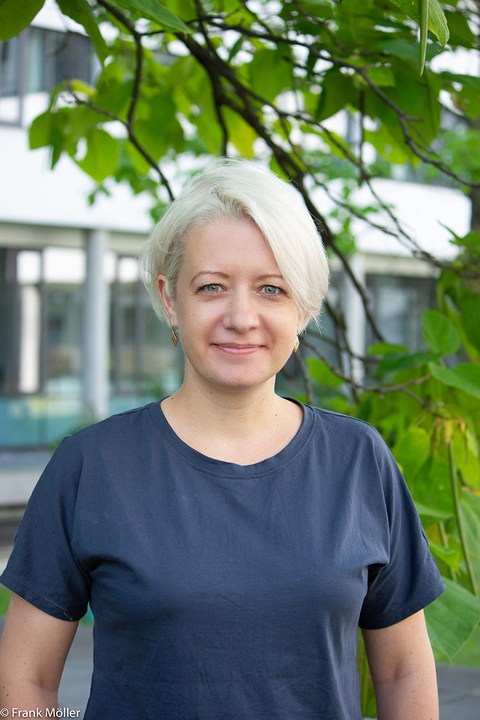Sep 10, 2021
Dr. Maria Fedorova appointed research group leader at the Center for Membrane Biochemistry and Lipid Research

Portrait Dr. Maria Fedorova
As of August 1st, 2021, Maria Fedorova was appointed as the first group leader at the newly founded Center of Membrane Biochemistry and Lipid Research at the Medical Faculty of the TU Dresden, which is headed by Prof. Dr. Ünal Coskun. Maria studied Biochemistry at Saint-Petersburg State University, Russia and obtained her PhD at the Faculty of Chemistry and Mineralogy, Leipzig University. Since 2012 she was a group leader at the Institute of Bioanalytical Chemistry at Leipzig University, researching the pathophysiology of obesity, insulin resistance, type II diabetes and cardiovascular disorders. In particular, her group focused on the in-depth identification and quantification of the human lipidome, the entirety of all lipids in a cell. Therefore, she developed and implemented high throughput LC-mass spectrometry methods for a variety of human tissues.
“A majority of metabolic diseases are characterized by the disbalance of lipid metabolism. And yet, understanding of specific changes in lipid compositions and quantities during onset and development of metabolic disorders are largely unknown.” Maria Fedorova says. “Lipidomics allow us to follow the disease associated lipidome remodelling, thus providing the key understanding of molecular mechanisms driving the pathology as well as paving the way for clinical translation of diagnostic and prognostic lipid markers.”
Maria Fedorova’s newly established group “Lipid metabolism: analysis and integration” at the TU Dresden will continue to explore the complexity and dynamics of natural lipidomes to integrate these data for a holistic understanding of lipid metabolism. For this, her group will combine state of the art high resolution mass spectrometry and bioinformatics solutions. Another focus of Dr. Fedorova’s research is the development and application of mass spectrometry-based methods for the analysis of the epilipidome, which is a subset of the lipidome formed by lipid modifications aiming to increase the regulatory capacity of biological systems. She says: “Our overall goal is to understand the organization and maintenance of biological systems that requires regulation at multiple levels. In this respect, modifications of lipids including oxidation, nitration, etc., provide a new level of structural, functional, and regulatory complexity, similar to DNA methylation and protein post-translational modifications. Modified lipids, consolidated in the epilipidome, can regulate cell metabolism, function and death. My group will focus on the characterization of epilipidome complexity and dynamics in the context of ferroptotic cell death and its implication in human metabolic disorders.” Therefore, her group will examine the role of modified lipids specifically in signalling processes, regulating physiological and pathological events at the cellular and organismal levels.
